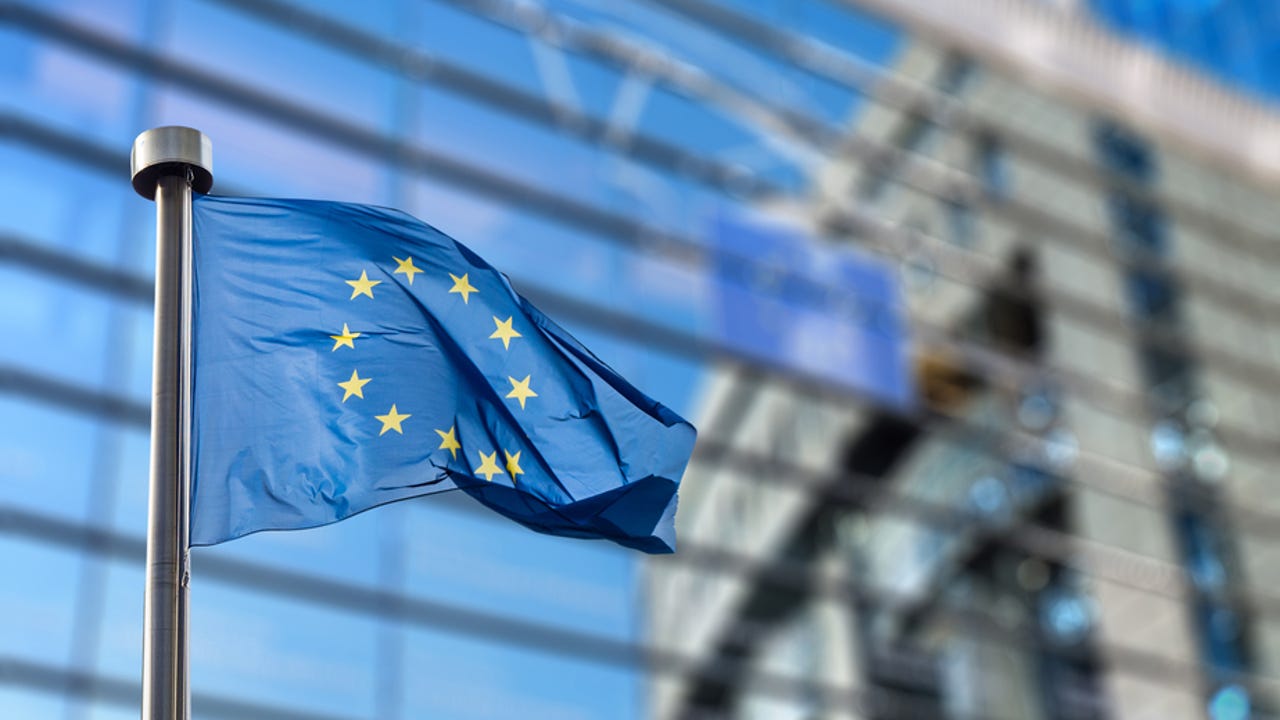Apple's €13bn tax fallout: Could this be the trigger for Ireland to leave the EU?


The Apple tax ruling has been seen by some as a reason for Ireland to leave the EU.
The decision by the European Commission (EC) that Ireland should claim €13bn in 'illegal tax benefits' back from Apple has stoked debate over whether Ireland should follow the UK and look to leave the EU.
Speaking ahead of today's EC ruling, Brian Hayes, Irish MEP for the Fine Gael party, said Ireland would not stand for any European interference with its ability to set corporation tax.
"That is the absolute red line issue. Any attempt made to cajole us [on corporation tax], as far as I'm concerned, we're out the door," he told the Irish Independent.
Any bid to rein in tax agreements drawn up by Ireland would, he said, put the country at a disadvantage when compared to a UK outside of Europe and unfettered by the same restrictions.
"We cannot be tied into an anti-business, anti-growth pact while the Brits are allowed to move on. We have a lot more to lose than anybody else," he said.
The two-year investigation by the EC into Apple's tax affairs found that two tax rulings that Ireland gave to the company substantially and artificially lowered the tax Apple paid in the country since 1991.
The tax deal allowed Apple to pay billions of euros less than would otherwise have been the case, with the firm at one point paying a tax rate of just 0.005 percent.
Following the EC decision, Hayes again raised the prospect that Ireland would become less attractive as a place to do business.
"The credibility of Ireland's business environment is on the line here," he said.
"What is also at stake is our future ability to attract FDI [foreign direct investment] into the country with a taxation system that is certain, clear and based on Irish law."
Other economic analysts have backed Hayes' argument that a Britain outside of the EU could be well-placed to use the promise of lower taxation to lure companies like Apple to the UK.
"Britain could benefit. If Ireland cannot offer sweetheart deals within the EU, the City of London can perhaps offer something more appealing outside the bloc," Neil Wilson, markets analyst at ETX Capital, told the Yorkshire Post.
For its part, Apple has already warned that the EC's decision, which is being challenged by both Apple and the Irish government, "will have a profound and harmful effect on investment and job creation in Europe". However, Apple also said that it remains "committed to Ireland and we plan to continue investing there".
The harm that the EC's decision will do to this investment is also the number one fear for the Irish government.
"Ireland has very real concerns about the way in which the European Commission is undermining the international consensus, impeding reform and creating uncertainty for business and investment in Europe," a spokesperson for the Department of Finance said.
But while an independent Ireland would have more control over taxation, if Ireland were to leave the EU it could also complicate matters for domestic businesses, leaving firms wrestling with uncertainty over trade tariffs and continued access to EU markets.
When it comes to public sentiment about Europe in Ireland, the Irish public have voted against EU interests in the past, with the majority of voters (53 percent) rejecting the Treaty of Lisbon when a referendum was held in 2008.
However, a second referendum in 2009 saw 67 percent back the treaty. The Taoiseach, the Irish Prime Minister, also actively encouraged British citizens to vote to remain in the EU, ahead of the referendum in June.
Ultimately the chance of the EC's decision on Apple having any meaningful impact on Ireland's future in the bloc is negligible, according to one European Union expert.
Dr Geoffrey Edwards, director of European Studies at Cambridge University, pointed out that Ireland had undergone significant hardship as a result of the spending cuts and financial reforms demanded by Europe in the wake of Ireland's €67.5bn bailout in 2010.
Given the difficulties those reforms caused had failed to trigger a referendum on Ireland's future in the EU, he said the EC's decision on Apple would likely have no repercussions for Ireland's continued membership.
"If the Irish can put up with the Eurozone package they had to suffer, then they can put with this," he said.
Read more on this story
- Apple should repay up to €13bn in 'illegal tax benefits' says European Commission
- Apple may pay 'material' amount of tax back to Ireland
- Europe opens tax probe into Apple in Ireland
- Ireland refuses to be US 'whipping boy' over Apple tax claims
- Revealing Apple's top 10 market risks (TechRepublic)
- Woz says Apple should pay 50% tax 'the same way I do' (CNET)